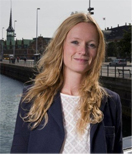 The Telecommunications Industry Association (Teleindustrien) in Denmark has recently signed a code of conduct defining the conditions of voluntary website blocking by Danish Internet Service Providers (ISPs).
The Telecommunications Industry Association (Teleindustrien) in Denmark has recently signed a code of conduct defining the conditions of voluntary website blocking by Danish Internet Service Providers (ISPs).
In the event that one ISP is ordered by a court decision or by an order from a regulatory body to block the access to a copyright infringing website, the participating ISPs commit themselves to implement the block within 7 days after the notification from the plaintiff.
The recent Code of Conduct sets out a number of provisions, which aim at setting up a one stop shop for website blockings at DNS level. Also, the Code of Conduct aims to ensure that blockings can be expanded to other websites in the case that the infringing site changes its domain name.
Denmark and the Danish rightholders, coordinated by their rights alliance, RettighedsAlliancen, has a long tradition of website blockings. In 2006, the Danish Supreme Court ordered the first successful blocking injunction within the EU. In 2010 the Danish Supreme Court was the first highest national court to issue a blocking decision based on the site blocking provisions in the EU Infosoc Directive.
The Code of Conduct reflects the acknowledgement of website blocking as an effective tool for reducing copyright infringements and can also be seen as a recognition of a shared responsibility for setting conditions for legal content online. The circumstance that the Danish ISPs have a history of positioning their businesses towards content distributionalso played a role:TDC (formerly Tele Danmark) was behind the first “all you can eat” music service, TDC Play.
The practice of a one stop procedure for website blockings has been there for a long period of time. It has been a pragmatic way to handle the many website blocking injunctions issued by Danish courts and it also reflects the positive and practical cooperation between the rightholders and ISPs in Denmark. This cooperation also has a long history and took a big step forward when rightholders and ISPs in 2012 decided to engage in a public awareness campaign together, on request of the Danish Ministry of Culture.
This campaign initiated a paradigm shift about the enforcement and regulation of consumer behavior on the internet. The cornerstone of the new approach is that the consumers are considered to be acting on the basis of their needs rather than their morale when they access online content. Thus, fighting online piracy is not about raising the morale of the consumers by telling them what is good and what is bad. It is about making legal content the easy and available choice.
This approach is reflected in the Code of Conduct; when a consumer goes to an illegal site to find the film, the music or the book that he is searching for and the site is DNS blocked, the communication on the blocked website guides the consumer to a list of legal platforms on the joint campaign platform http://www.sharewithcare.dk/. Within its first year of existence hundreds of thousands of Danish consumers have visited the list of legal services as a direct traffic from blocked copyright infringing websites.
But making legal content the easy and available choice for consumers, requires the involvement of more stakeholders than just the ISPs. Online search engines, payment providers, social medias and many other service providers all have a role to play when it comes to dealing with the availability of legal offers on the Internet.
Rightholders and online service providers will therefore meet in the coming months to engage in a new stakeholder dialogue hosted by the Danish Ministry of Culture and discuss new and other effective ways to stimulate and promote legal online content
MF
________________________
To make sure you do not miss out on regular updates from the Kluwer Copyright Blog, please subscribe here.


